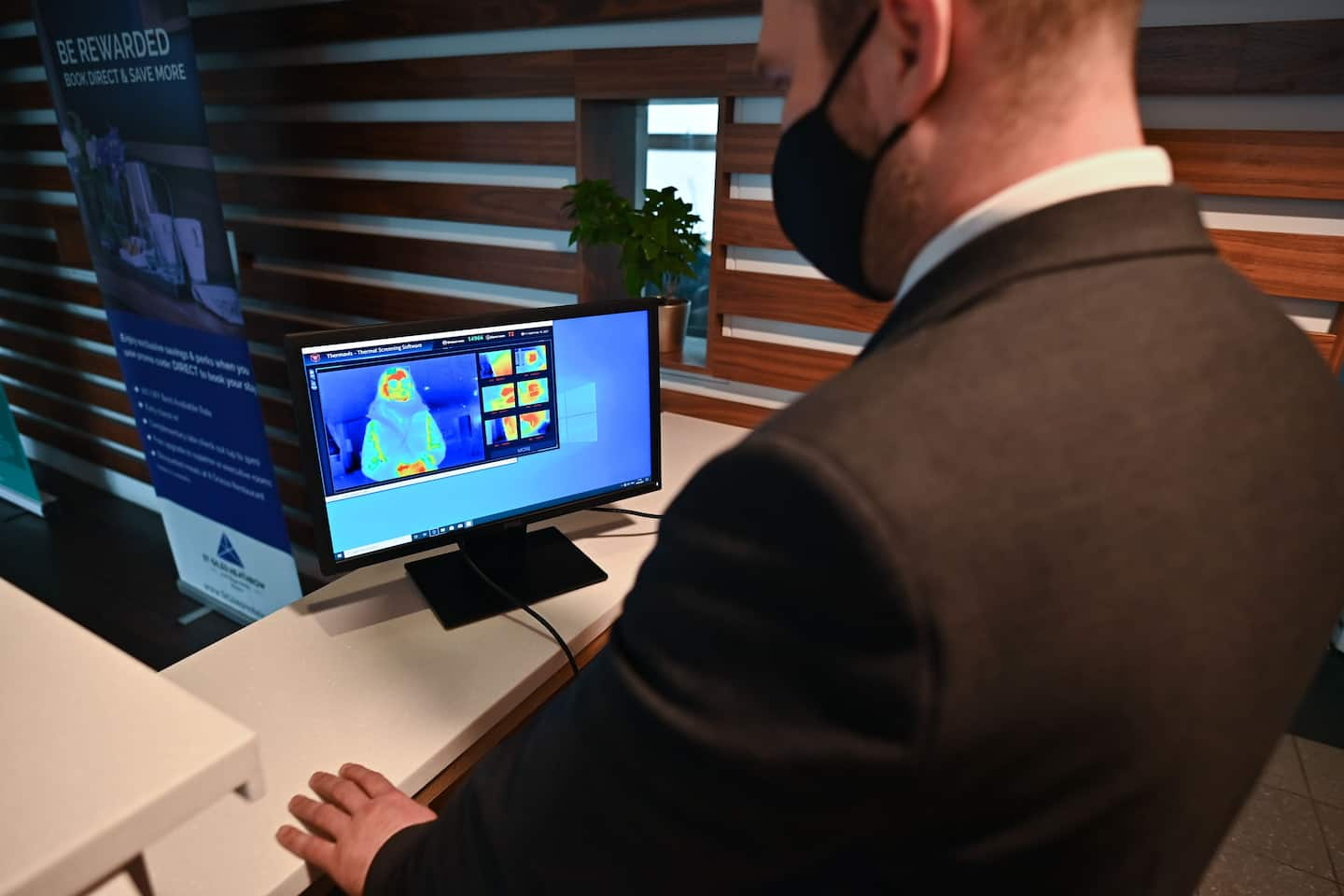Fever scanner company reverses decision, saying tool cited in FDA warning will continue to be sold

Certify Global was one of seven thermal-scanner companies tested in research first reported Thursday by The Washington Post that raised questions about the systems’ accuracy in assessing a person’s temperature for signs of a potential coronavirus infection.
The FDA also sent the Maryland-based company a warning letter that day saying the company had sold its Snap XT Pro and InfinityX Pro devices without FDA “marketing approval, clearance or authorization.”
The FDA said the company had advertised its devices as effective for scanning multiple people at the same time, which the agency said raised the risks of returning incorrect results, and said that failure to address the matter could lead to regulatory action such as “seizure, injunction and civil money penalties.”
Jasmine Neisser, Certify’s spokeswoman and lead technical writer, had said late Thursday in a statement to The Post that the company was “retiring” one of its scanners, the InfinityX, “for the time being as we look into the FDA’s concerns.”
After publication, Neisser on Monday night sent a statement reversing that stance, saying, “After further discussions with our programming team and senior leadership, none of our devices are being pulled off the market and all of our products remain available.”
The company has disputed the tests by the surveillance research group IPVM, which found that devices by Certify and other companies normalized temperature readings in a way that could undermine their ability to consistently detect fevers.
Certify chief executive Marc Potash said in a letter to The Post on Monday that it had resolved all issues noted by the FDA “in a few hours, and they were simply marketing adjustments to address their concerns, not software ones.”
The FDA said it does not comment on company discussions.
Potash said in an online post Sunday that “the FDA’s letter does NOT take issue with single-person scanners, like the top selling CERTIFY’s SnapXT,” though the FDA warning letter specifically names that device.
In the post, Potash said the company had responded to the FDA in “a timely and comprehensive manner and have clarified our products and offerings to both them and on our website.” However, in his letter to The Post on Monday, Potash wrote that “we have not had a chance to respond to the FDA letter, much less review it in detail.”
The FDA said Thursday in a public alert that improper thermal-scanner use could lead to “potentially serious public health risks.” The FDA’s Center for Devices and Radiological Health, which vets thermal scanners, has since Thursday issued warning letters to 11 companies, including Certify, for “adulterated and misbranded” products related to the pandemic, agency data shows.
Certify scanners are used in casinos, hotels and roughly a dozen NFL stadiums, according to Certify and an NFL spokesman. The company said its in-stadium devices are used “exclusively for single-scanning purposes.”
Potash wrote in his Sunday post that Certify’s “products perform at the highest possible level of accuracy,” and in his letter Monday wrote that there is no “risk of incorrect detection with our scanners.” The company, he wrote, had deployed more than 10,000 thermal scanners and “have over 100,000,000 scans to date with no accuracy issues.”
Neisser also said last week that the multi-person scanning feature cited by the FDA had “not been activated for any customers up to this point.” But in a test of Certify’s SnapXT Pro scanner published in November, IPVM researchers who bought the device said they were able to activate and use the feature.
The researchers tested both single-person and multi-person scans and found that the device “missed moderately elevated temperatures” in the fever range of about 100 degrees Fahrenheit “while making lower and elevated temperatures be reported as more normal.” They added, “The device’s inaccurate group screening mode and missed elevated temperatures are likely to lead to significant numbers of missed detections.”






